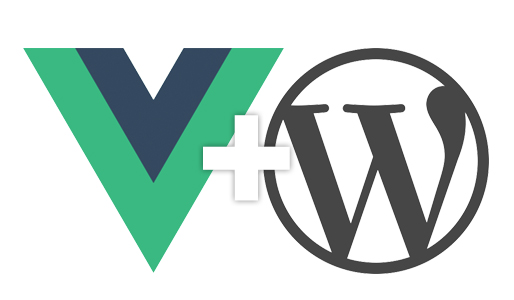A true WordPress theme with the guts ripped out and replaced with Vue. Based on the BlankSlate WP starter theme.
Who's this for? When I started diving into using Vue in WordPress I found plenty of great starters for headless WordPress, but I had the added constraint of needing to run the front and backend on the same host, thus this project was created.
- VueRouter integrated
- Vuex integrated (with sample WordPress-centric modules)
- jQuery integrated, if that's your thing
- Firebase support and sample config
- Axios for API requests
- Follows the development guidelines/structure set forth by Vuejs
- Bare essentials needed for a functional WordPress theme
- All requests are redirected back to the index.php so your Vue routing is respected.
- SCSS support
- Bootstrap-Vue integrated
- Clone the repo inside of your
wp-content/themes/directory - Navigate to the theme directory and run
npm installnpm run watchfor developmentnpm run productionwhen you're ready to deploy the theme.
Not sure where to begin? The Vuejs documentation is actually amazing, but if you're looking for video training I highly recommend the free Learn Vue 2: Step By Step course over at Laracasts. There's also a great playlist by Academind available on YouTube that covers pretty much everything you'd want to know about building a fully-featured Vue app.
I've created a couple of example components in src/components/widgets to give you an idea of how to work with the Vuex store data.
If you're new to Vue/Vuex I would do the following:
- Open up
src/app.jsthis is the main JS file for the app and will give you a glimpse into what's going on behind the scenes. - Next open up
src/App.vuethis is the primary app component, a page wrapper of sorts. It contains the header/footer and the<router-view>component which is what loads in all of the other screens as you navigate around the app. Note that by defaultsrc/components/Home.vueis loaded into therouter-viewinitially. - Next open up
src/routes/index.jsand notice how the routes are setup by default. Out of the box there is only one route, the/or home view. For more information on setting up routing within your app checkout Vue-Router. - Next is the Vuex store. I won't cover how that works here as it's a tiny bit more advanced. Check out all files in
src/storeand start to familiarize yourself with what's going on. It's based on the official Vuex example project setup and uses Vuex modules. By default I've included a couple of modules I thought you might need.
The first thing you're probably going to want to do is start editing and components in src/components/.
All of the code you're going to edit is located in /src/. From there it's broken into a few logical directories.
/src/apifor API requests/assetsfor images mostly/componentsVue components/routervue-router directives/storevuex store and modules/stylesSCSS styles/vendor3rd party scripts and libraries
All scripts and styles in /src are compiled down to the /dist directory, which is what you will deploy. When you're ready to deploy don't deploy the src/ directory.
- Example components for loading recent posts.
- WordPress menu integration
- A few more starter routes
- More documentation

